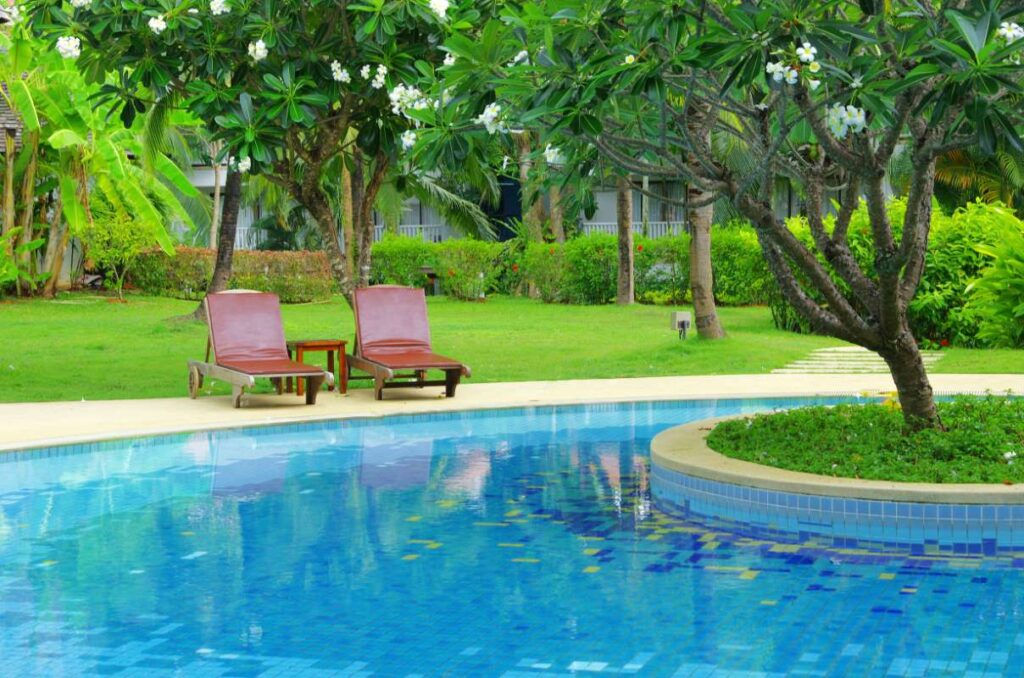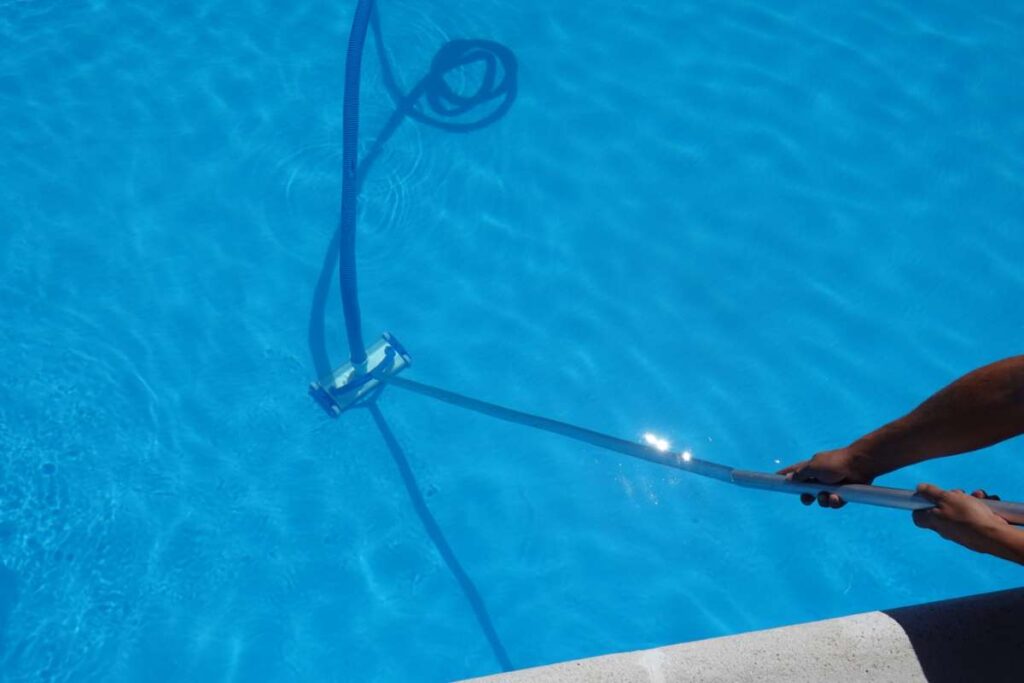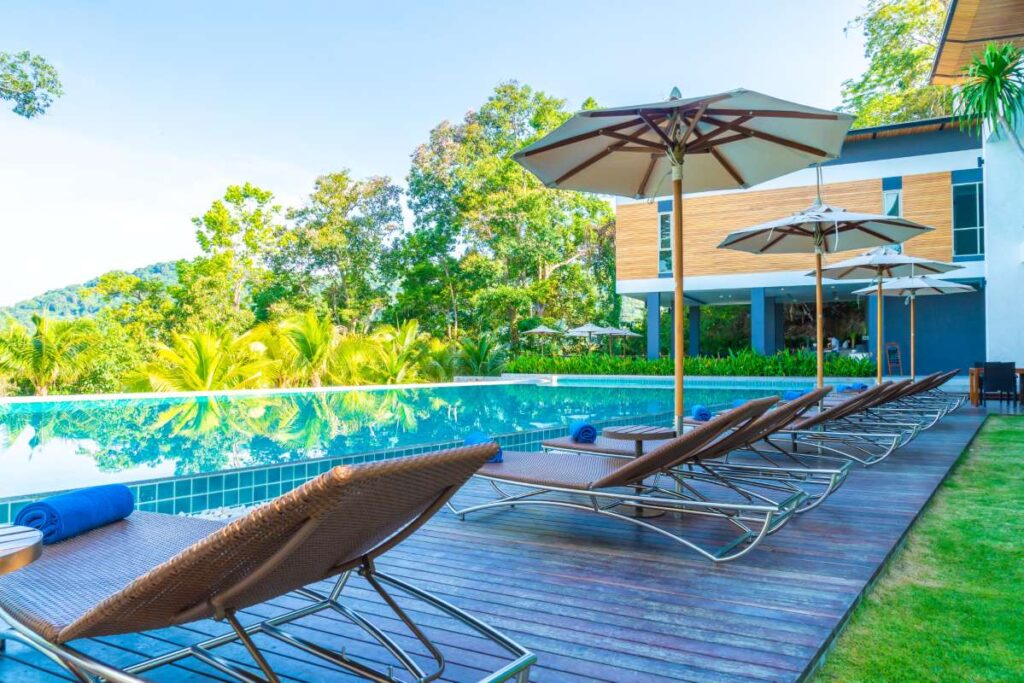Guide to Advanced Filter Systems: Cartridge, Sand, and DE Filters
Discover the ins and outs of advanced pool filter systems, including cartridge, sand, and DE filters, for optimal pool maintenance and clarity.
This comprehensive guide explores the different types of advanced filter systems for pools, focusing on cartridge, sand, and diatomaceous earth (DE) filters. Each type of filter plays a crucial role in maintaining clear and clean pool water, contributing to an enjoyable swimming experience. We will delve into how each filter system works, their pros and cons, installation and maintenance requirements, and tips for choosing the best option for your pool. By the end of this article, you’ll have the knowledge needed to make an informed decision when it comes to pool filtration systems.
Introduction to Advanced Filter Systems
Maintaining a clean and safe swimming environment is of paramount importance for any pool owner. One of the key factors in achieving this is the filtration system in place. Advanced filter systems, including cartridge, sand, and DE filters, each offer unique advantages and functionalities. Understanding these differences is fundamental to selecting the most effective system for your specific needs.The filtration system is responsible for removing debris, contaminants, and impurities from pool water. It ensures that your pool remains sparkling clean and safe for swimming. As we explore each type of filter, we’ll highlight their mechanisms, maintenance requirements, and effectiveness in various pool environments.
Cartridge Filters: Efficient and Low-Maintenance
Cartridge filters are often lauded for their efficiency and ease of maintenance. They utilize a cylindrical filter element made of pleated polyester, which captures dirt and debris as water passes through. Here’s what you need to know about cartridge filters:- How They Work: Water from the pool is drawn into the filter, where it passes through the cartridge. The pleated design increases the surface area, allowing for an effective trapping of contaminants without the need for backwashing.- Pros: – Low Maintenance: Unlike sand filters, cartridge filters do not require backwashing, making them easier to maintain. – Energy Efficient: They can operate with lower flow rates, which may lead to reduced energy consumption. – Versatile: Suitable for all pool types and sizes, including above-ground and in-ground pools.- Cons: – Limited Lifespan: The filter cartridges need to be replaced every 1-3 years, depending on usage and water quality. – Initial Cost: The upfront cost of cartridge filters can be higher compared to sand filters, although maintenance costs are lower over time.In summary, cartridge filters are a great choice for pool owners looking for a user-friendly and effective filtration solution. Their efficiency and low maintenance requirements make them an attractive option for both new and experienced pool owners.
Sand Filters: A Time-Tested Option
Sand filters have been a popular choice for pool filtration for many years. They utilize a tank filled with specially graded sand to filter out debris and contaminants. Here’s a closer look at sand filters:- How They Work: Water flows into the filter tank, where it passes through the sand. The sand particles trap dirt and debris, allowing clean water to return to the pool. Periodic backwashing is necessary to remove the accumulated debris and restore flow.- Pros: – Cost-Effective: Sand filters are typically more affordable upfront compared to cartridge and DE filters. – Long Lifespan: The sand itself can last for several years (5-7 years) with proper maintenance. – Ease of Use: Backwashing is straightforward, requiring minimal effort to maintain efficiency.- Cons: – Higher Maintenance: While the sand lasts long, the need for regular backwashing can be a hassle. – Less Effective: Sand filters may not capture smaller particles as effectively as cartridge or DE filters, which could lead to cloudy water.For pool owners seeking a reliable and budget-friendly filtration option, sand filters remain a solid choice. They provide effective filtration for a wide range of pool sizes and types, making them a staple in the industry.
Diatomaceous Earth (DE) Filters: Superior Filtration Performance
Diatomaceous earth (DE) filters are known for their exceptional filtration capabilities. They use a fine powder made from diatoms, a type of algae, to achieve superior water clarity. Here’s what sets DE filters apart:- How They Work: Similar to sand filters, DE filters have a grid structure that is coated with diatomaceous earth. As water flows through, DE captures even the tiniest particles, providing unparalleled clarity.- Pros: – High Filtration Efficiency: DE filters can capture particles as small as 5 microns, making them ideal for keeping pool water crystal clear. – Less Frequent Backwashing: Due to their high efficiency, DE filters require less frequent cleaning compared to sand filters. – Enhanced Water Quality: The superior filtration helps in maintaining better water quality, reducing the need for additional chemical treatments.- Cons: – Higher Initial Cost: DE filters can be more expensive than both sand and cartridge filters. – Maintenance Complexity: They require more maintenance, including regular recharging with DE powder after backwashing. – Regular Monitoring: Pool owners must ensure that the DE levels are adequate for optimal performance.For those who prioritize water clarity and quality, DE filters serve as an excellent option. They are particularly beneficial in larger pools or environments where water quality is critical, such as in commercial pools.
Comparing the Three Filter Types
Choosing the right filter system for your pool can be a daunting task, especially with three excellent options available. To assist in making your decision easier, let’s compare cartridge, sand, and DE filters based on key factors:- Filtration Efficiency: – DE Filters: Captures particles as small as 5 microns. – Cartridge Filters: Generally captures particles down to 10-15 microns. – Sand Filters: Captures particles around 20-40 microns.- Maintenance: – Cartridge Filters: Minimal; no backwashing required. – Sand Filters: Requires backwashing every few weeks. – DE Filters: Requires regular backwashing and replenishing DE powder.- Cost: – Sand Filters: Usually the most affordable option. – Cartridge Filters: Moderate initial cost with low maintenance. – DE Filters: Higher upfront cost with more complex maintenance.- Lifespan: – Sand Filters: 5-7 years for sand; longer for the tank. – Cartridge Filters: 1-3 years for cartridges. – DE Filters: 5-7 years for grid components.This comparison highlights the strengths and weaknesses of each filter type. When selecting the right one, consider factors like pool size, maintenance preferences, and budget.
Best Practices for Maintaining Your Pool Filter System
Regardless of the filter type you choose, proper maintenance is essential for optimal performance. Here are some best practices to keep your filtration system running smoothly:1. Regular Cleaning: Clean your filters as recommended by the manufacturer. For sand filters, backwash regularly, while cartridge filters should be hosed down to remove debris.2. Monitor Water Chemistry: Maintain balanced water chemistry to reduce stress on your filtration system. Regularly check pH, alkalinity, and chlorine levels.3. Inspect for Wear: Periodically inspect your filter and components for signs of wear or damage. Replace cartridges, sand, or DE as needed to ensure efficiency.4. Call for Professional Help: If you encounter persistent issues with your filter system, don’t hesitate to contact a pool maintenance professional for assistance and guidance.5. Educate Yourself: Familiarize yourself with the function and maintenance requirements of your chosen filter type. Knowledge empowers you to keep your pool in top condition.Implementing these practices can significantly enhance the efficiency and lifespan of your pool filter system.
Conclusion
In conclusion, choosing the right filtration system is crucial for maintaining a clean and inviting pool. Whether you opt for a cartridge, sand, or diatomaceous earth filter, understanding their functions, benefits, and maintenance requirements will empower you to keep your pool in pristine condition.Each filter type has its own unique advantages, making them suitable for varying pool needs and preferences. By taking the time to evaluate your specific situation, you can select the most appropriate filter system that aligns with your goals for pool ownership. If you are looking to enhance your pool maintenance practices, consider exploring
Super Pool Routes for expert training and support, and the opportunity to acquire established
pool routes for sale in your region. Investing in your pool’s cleanliness and clarity today will pay dividends for years to come.



